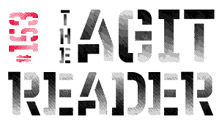
McCartney and McCartney II Deluxe
MPL/Concord
Every fan of rock music is familiar with the story of the Beatles, particularly how the band disintegrated in its final years, resulting in a bitter rift between its two foremost creative forces, John Lennon and Paul McCartney. While the two reconciled to some degree before Lennon’s untimely death, they have remained juxtaposed in the eyes of many, with some fans firmly in one man’s camp or the other. Perhaps because of Lennon’s death and the relatively slower pace at which he released material during his post-Beatles years—as well as the fact that a significant portion of McCartney’s post-Beatle work came under the guise of Wings—much of Lennon’s solo work has been afforded a higher level of reverence than McCartney’s.
At least partly in response to this (one imagines), McCartney has reissued two of his solo albums, McCartney and McCartney II, hot on the heels of last year’s reissue of Wings’ Band on the Run. Each reissue comes in a variety of editions: a single-disc version containing only the original album, a two-disc special edition that adds outtakes and live tracks, and a deluxe edition that includes all that plus DVDs featuring videos and other visual footage, as well as books containing expanded liner notes.
Released in 1970, McCartney was recorded during the last days of the Beatles, with Paul putting the finishing touches on the album at the same time that Phil Spector was putting his own flourishes on the mess of tapes that became the Beatles’ Let It Be. It should come as no surprise then that McCartney sounds like an extension of Paul’s work with the Beatles. Much of the self-produced album is acoustic, and these tracks, such as the poignant “Junk,” the breezy “Every Night” and the childlike “Teddy Boy,” all sound distinctly similar to McCartney’s selections on The White Album.
The album’s most enduring classic is “Maybe I’m Amazed,” which might be McCartney’s most beloved post-Beatles song. The McCartney version of the track, however, sounds markedly different from the hit version, which was recorded by Wings and released as a single later in the ’70s. This iteration of the song would’ve fit on Abbey Road, with the guitar, bass and background vocals sounding as if they were recorded during those sessions. McCartney is rounded out by a number of serviceable instrumentals, as well as the genre-bending experimental finale, “Kreen-Akrore,” which hints at McCartney’s underrated tendency to push the sonic envelope. The McCartney bonus tracks from the special edition are rather negligible, consisting of a number of live versions from 1974 and 1979 and studio outtakes, such as the tongue-in-cheek “Suicide” and “Women Kind.”
Notably, 1980’s McCartney II may or may not be McCartney’s second solo album, depending on how one considers Ram, an album released a year after McCartney and credited to both McCartney and his wife Linda. Indeed, McCartney II bears little surface resemblance to McCartney. The two albums, however, share similar origins in that McCartney II was recorded while Wings was crumbling, making it McCartney’s renewed attempt to further define himself as an artist. And, much like McCartney, McCartney II is a sparse, self-produced album on which Paul plays all the instruments.
McCartney II is successful due to Paul’s willingness to step outside of his relative comfort zone and delve heavily into electronics and R&B stylings. The album establishes its tone from the start with the sizzling, soulful track, “Coming Up.” “Temporary Secretary” introduces the electronic element of the album; a synthesizer line propels the charmingly disjointed song, one of McCartney’s weirdest. “On the Way” and “Nobody Knows” serve as fine R&B tracks, while “Front Parlour” and (the somewhat unfortunately titled) “Frozen Jap” round out the excellent electronica songs. It’s worth noting that despite all this, McCartney hadn’t lost his sensitive side, as evidenced by “Waterfalls,” a plaintive song that seems to have gotten finer with age, even despite TLC’s mid-90s half-attempt to recast it.
The McCartney II bonus tracks prove to be more interesting than those included in the McCartney reissue. A 10-minute version of “Secret Friend,” a fusion of R&B, jazz and electronica, sounds like a British take on Kraftwerk. A voice in the introduction of “Mr H Atom/You Know I’ll Get You Baby” proclaims that the track is the “Shangri-Las versus the Village People.” The Village People win the first passage, while the second part sounds like a minimalistic synth version of a Southern Baptist revival romp. Also included is the McCartney holiday standard “Wonderful Christmastime” and “All You Horse Riders/Blue Sway,” an off-the-cuff electronic Western which segues into a later version of “Blue Sway,” a sort of rock-disco mash-up that also appears in another form in the bonus materials. Also of particular note are an extended interview with McCartney included in the DVD, as well as a stunning surfing video produced by filmmaker Jack McCoy that features “Blue Sway” as the soundtrack.
These reissue packages are well-constructed and produced, with the single-disc and two-disc editions being ideal for those looking for pristine-sounding copies of these records without taking a chance on the used vinyl market, and the deluxe editions include enough material to warrant an addition to diehard fans’ collections. While neither McCartney nor McCartney II is an all-time classic, both albums prove essential to a complete understanding of McCartney as an artist who has shaped the course of rock music over the past half-century.
Ron Wadlinger
PAST PERFECTS
Sebadoh, Bakesale
Love, Black Beauty
Reatards, Teenage Hate
DOA, Something Better Change and Hardcore 81
Simple Minds, Sparkle in the Rain
Mercury Rev, Deserter's Songs
Blank Dogs, Collected By Itself: 2006-2009
The Kinks, Kinks, Kinda Kinks and The Kink Kontroversy
The Zeros, "Main Street Brat" and The Normals, "Almost Ready"
Pearl Jam, Vs. and Vitalogy
Swearing at Motorists, Postcards from a Drinking Town
Talk Talk, Spirit of Eden
Disco Love 2: More Rare Disco & Soul Uncovered
Nick Lowe, Labour of Lust
